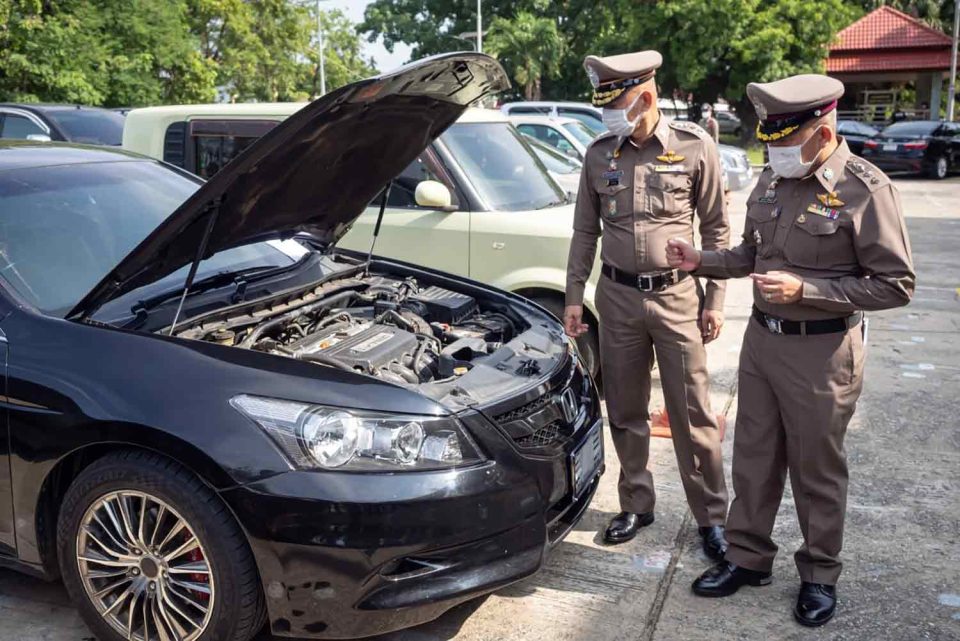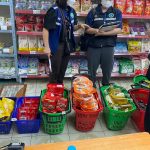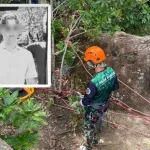The Royal Thai Police launched an operation titled “Crackdown on Illegal Vehicles Flooding the City,” resulting in the search of four locations and the discovery of over 2,000 fake vehicle registrations, including one registration number used on 26 different vehicles.
The operation, conducted yesterday, involved the Crime Suppression Division and the Department of Land Transport (DLT). Senior officers, including Sopon Saraphat, Montri Teskhan, Kongkrit Lertsitthikul, and Sekson Akkharaphan, Deputy Director-General of the DLT, announced the results from the targeted areas in Samut Sakhon, Ratchaburi, Chaiyaphum, and Sisaket.
Four individuals were arrested, and over 30 vehicles, including cars and motorcycles, along with fake license plates, were seized.
Sopon emphasized that the operation was necessary due to the significant number of illegal vehicles using counterfeit license plates on the roads. It was found that some registration numbers were used on as many as 26 different vehicles.
These fake registrations are increasingly being used for other illegal activities, such as drug trafficking, smuggling illegal immigrants, and transporting illegal weapons. Coordination with the DLT was crucial for the success of this operation
Officer Montri explained that the recent crackdown is part of an ongoing investigation into a network known as “Madam Mali,” which has been involved in exporting vehicles with fake registrations to neighboring countries.
Last year, on September 26, during a raid in Loei province, police uncovered over 2,000 items of vehicle data, including registration numbers, tax stickers, vehicle brands, and chassis numbers. These documents were believed to be forgeries intended for sale to customers.
The data was classified into three categories: the first included registration numbers that were in the Department of Land Transport’s (DLT) database but associated with incorrect vehicle types; the second group consisted of registration numbers that matched the vehicles but were used on multiple units, referred to as “twin cars”; and the third group contained registration numbers that had no records in the system or were unassigned.
Montri further explained that many of the 2,000 vehicles identified were still under the ownership of finance companies. In some instances, vehicle owners pawned their leased vehicles with the intent to sell them later. However, some of these pawned vehicles were sold off without the owners’ consent.
While some buyers were aware of the vehicles’ illegal status and were attracted by the low prices or intended to use them for illicit purposes, others were unaware they were purchasing illegal vehicles due to the convincing nature of the counterfeit license plates and registration documents.
Officer Kongkrit highlighted that over the past year, highway police have seized 67 vehicles with fake registrations, primarily used for drug trafficking, smuggling illegal immigrants, and transporting contraband or untaxed goods.
DLT Deputy Director-General Sekson noted that the department has been working closely with the police to verify vehicle registrations and prevent illegal activities. The investigation revealed that the registration number used on 26 vehicles was indeed fake and had never been officially issued
credit Khaosod





